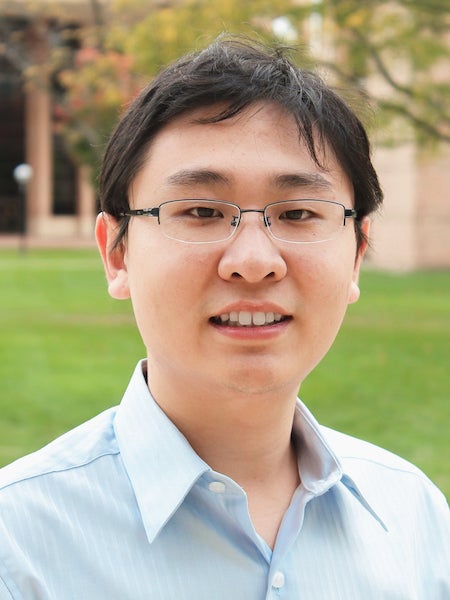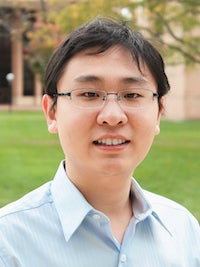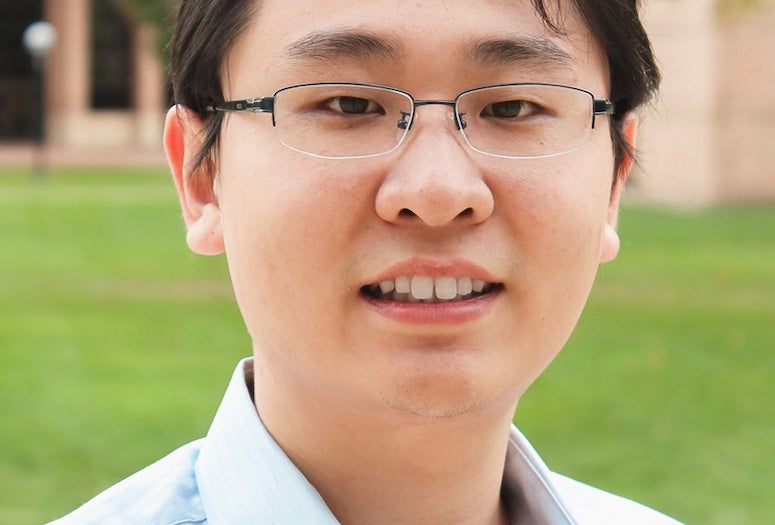By Patrick Kurp
Special to the Rice News
HOUSTON – (April 7, 2022) – Kaiyuan Yang, an assistant professor of electrical and computer engineering at Rice University’s George R. Brown School of Engineering, has won a $500,000 National Science Foundation CAREER Award to study the reliability and security of wireless, batteryless, minimally invasive (WBMI) bioelectronics.

The highly competitive five-year grants are given to early career faculty members who demonstrate potential to serve as academic models and leaders in research and education. The NSF gives about 500 such awards across all disciplines each year.
“WBMI bioelectronics that can be deeply implanted in humans through minimally invasive injection, ingestion or through vessels show great promise in transforming many clinical and scientific applications benefiting health and well-being,” Yang said. “While there are extensive research efforts on these devices worldwide, crucial reliability and security issues are largely overlooked in state-of-the-art systems.
“However, given the extreme power and size constraints of these devices, we need to build reliability and security protections holistically with the essential bioelectronic functionalities and components, not as an afterthought,” he said.
Researchers face three challenges when making WBMI bioelectronic implants reliable and secure: designing safe, efficient, reliable wireless power delivery methods; ensuring secure access and communication in remote telemedicine and emergency situations; and integrating real-time monitoring of potential failures or attacks during extended periods of operation.
Yang’s interdisciplinary project spans materials, integrated circuits, power electronics, security, wireless communication and computing.
“Our key methodology is to enhance the reliability and security of bioelectronic implants by making them aware of and adaptive to their physical and logical contexts,” he said. “To demonstrate such capabilities, we will design and prototype circuits and proof-of-principle systems and protocols.”
Yang earned his master’s degree and Ph.D. in electrical and computer engineering from the University of Michigan in 2014 and 2017, respectively, and his bachelor’s in electrical engineering from Tsinghua University in China in 2012.
He joined the Rice faculty in 2017 and directs the Secure and Intelligent Micro-Systems Lab. Last year he won the IEEE Custom Integrated Circuits Conference Best Paper Award.
Patrick Kurp is a science writer for the George R. Brown School of Engineering.
- NSF CAREER abstract
-
https://www.nsf.gov/awardsearch/showAward?AWD_ID=2146476&HistoricalAwards=false.
- Image for download
-

https://news-network.rice.edu/news/files/2022/04/0411_YANG-2-WEB.jpg
CAPTION: Kaiyuan Yang. (Credit: Tommy LaVergne/Rice University)
- Related materials
-
Blood vessels are guides for stimulating implants: https://news.rice.edu/news/2022/blood-vessels-are-guides-stimulating-implants
Timing is everything in new implant tech: https://news.rice.edu/news/2021/timing-everything-new-implant-tech.
Magnet-controlled bioelectronic implant could relieve pain: https://news.rice.edu/news/2020/magnet-controlled-bioelectronic-implant-could-relieve-pain.
Rice boosts ‘internet of things’ security — again: https://news2.rice.edu/2020/02/18/rice-boosts-internet-of-things-security-again/.
Secure and Intelligent Micro-Systems Lab: https://vlsi.rice.edu
Department of Electrical and Computer Engineering: https://eceweb.rice.edu
George R. Brown School of Engineering: https://engineering.rice.edu
Follow Rice News and Media Relations via Twitter @RiceUNews.
- About Rice
-
Located on a 300-acre forested campus in Houston, Rice University is consistently ranked among the nation’s top 20 universities by U.S. News & World Report. Rice has highly respected schools of Architecture, Business, Continuing Studies, Engineering, Humanities, Music, Natural Sciences and Social Sciences and is home to the Baker Institute for Public Policy. With 4,052 undergraduates and 3,484 graduate students, Rice’s undergraduate student-to-faculty ratio is just under 6-to-1. Its residential college system builds close-knit communities and lifelong friendships, just one reason why Rice is ranked No. 1 for lots of race/class interaction and No. 1 for quality of life by the Princeton Review. Rice is also rated as a best value among private universities by Kiplinger’s Personal Finance.

